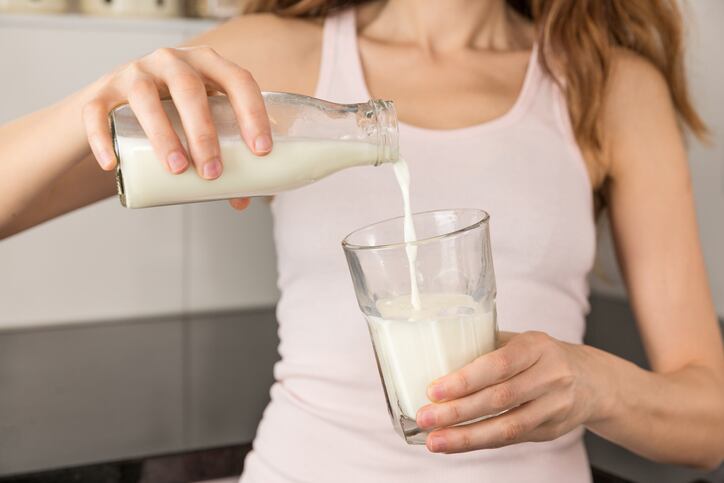Telomeres are nucleotide sequences at the end of human chromosomes, and their length is an indicator of biological aging. BYU exercise science professor Larry Tucker, Ph.D., studied the correlation between milk consumption and telomere length in a recent report.
The study analyzed daily milk drinkers vs weekly milk drinkers as well as milk fat content. The older a person is, the shorter their telomeres are, and Tucker found that the more high-fat milk participants drank, the shorter their telomeres were.
A total of 5,834 adults were studied (3,072 women and 2,762 men). About one-third consumed whole milk, 30% drank 2% milk, 10% drank 1% milk, 17% drank nonfat milk, and 13% did not drink cow’s milk.
Those drinking 2% milk had telomeres that were 69 base pairs shorter than those drinking 1%. This translated to more than four years in additional biological aging. The telomeres of whole milk drinkers were 145 base pairs shorter than non-fat milk drinkers.
Those who did not drink cow’s milk still had shorter telomeres than those who drank low-fat milk. Tucker noted that frequency of milk consumption was not found to be related to telomere length.
"Why was the amount of milk fat typically consumed by US adults related significantly to telomere length in the present study?" he asked.
"Although the exact mechanism is unknown, the fact that telomere length and genomic stability are highly related to oxidative stress and inflammation is frequently noted in the literature."
And most previous research on the correlation between adult milk consumption and either health or disease has been inconsistent, Tucker said.
But his findings align with the latest Dietary Guidelines for Americans (2015–2020), which recommend consumption of low-fat milk as part of a healthy diet. The BYU study was published in the Oxidative Medicine and Cellular Longevity journal.

